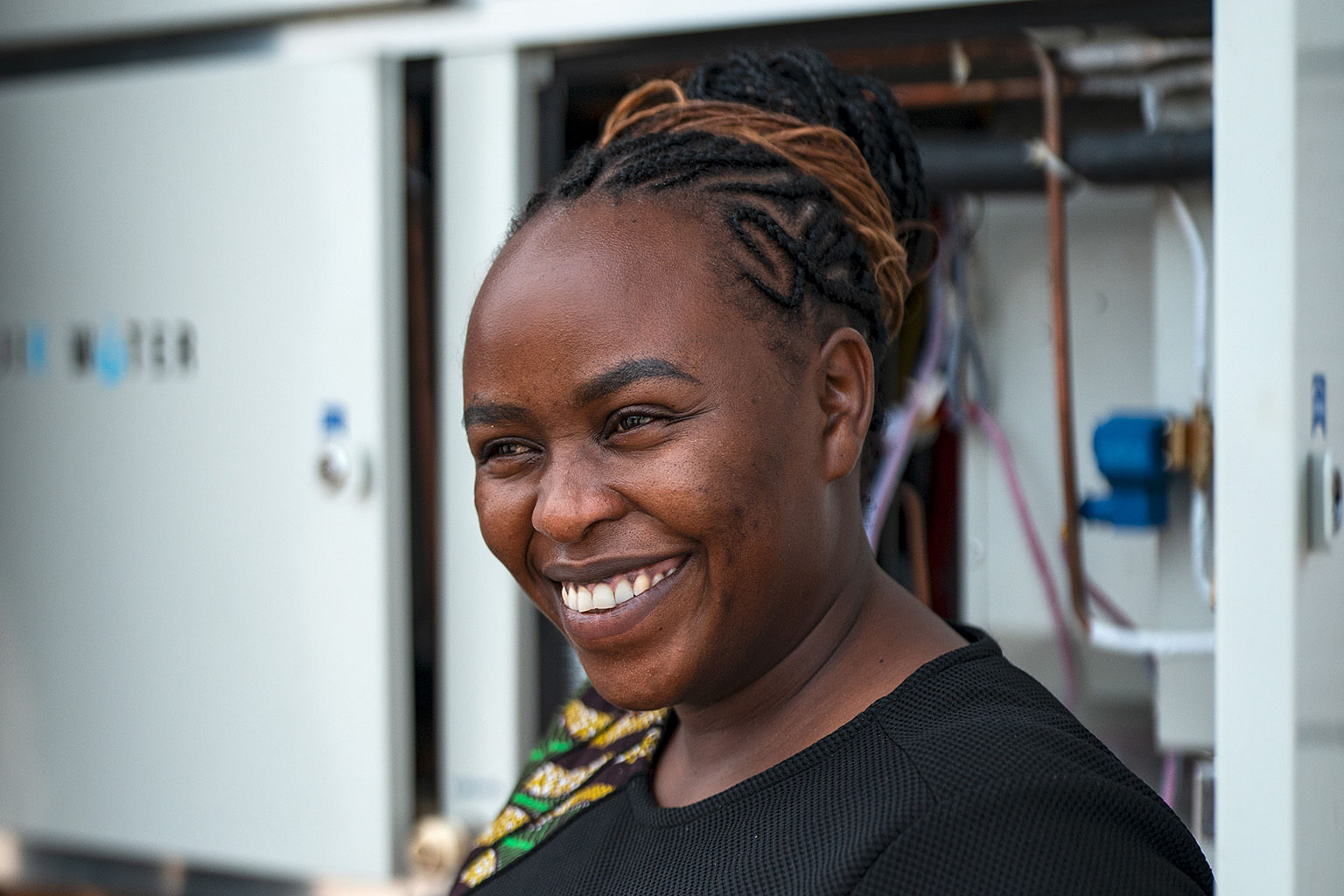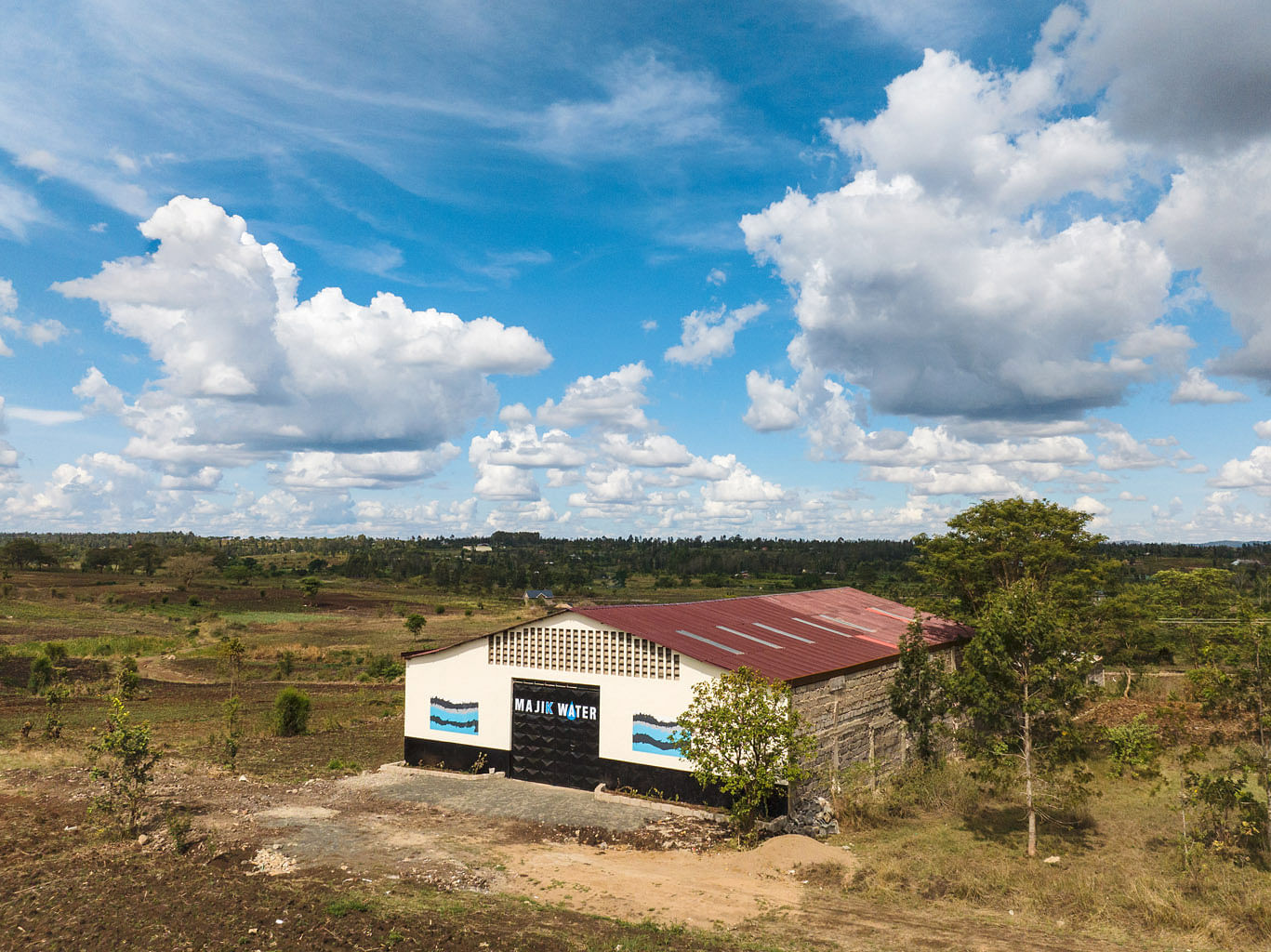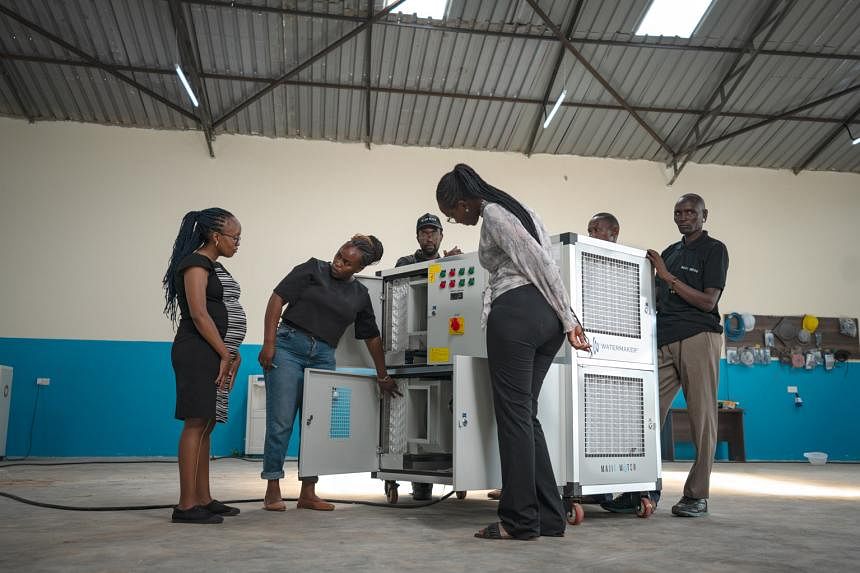In Singapore, most people do not hesitate to go to their taps to get the water they need or take multiple showers a day if the weather is especially hot and humid. After decades of investments in water infrastructure, the country is in the enviable position of having steady supplies of clean water.
When Kenyan entrepreneur Beth Koigi was growing up in the verdant, rain-blessed highlands of the nation’s central Limuru region, she also took her hometown’s supply of plentiful, clean water for granted.
Her perspective changed when she went to university in eastern Kenya: When she turned on the taps, the water came out brown due to the dust-like silt sediment in it. “I was fetching this silty water from our campus taps but nobody seemed concerned. That was when I realised there are regions in the country where access to clean drinking water is a big challenge,” says the 32-year-old.
Looking for a way to clean the water efficiently, she designed a water filter that worked so well that she was able to go into business selling it to other students, the larger community and eventually nation-wide. Her travels exposed her to the breadth of the problem: About half of Kenya’s population cannot get clean drinking water, causing 10,000 deaths yearly.
Determined to help, she joined forces with others to develop a solar-powered atmospheric water generator (AWG) that pulls clean, drinkable water from the air. The team founded a firm in 2017 called Majik Water – from the Swahili ‘maji’ for water and ‘kuvuna’ for harvest – to rope in corporations and others to install their invention where needed.
With Majik Water operating 20 large and 10 small units of the AWG that in total produce over 200,000 litres of drinking water each month in Kenya’s arid regions, Ms Koigi’s innovation also drew the attention of Swiss watchmaker Rolex, which named her as one of its five 2023 Rolex Awards for Enterprise Laureates.
The Rolex Award will enable the firm to install 10 additional systems that will each generate up to 500 litres of water daily, giving a lifeline to thousands of people in refugee camps and off-grid communities in northern Kenya’s Turkana region. The water can be used for drinking and irrigating food-growing plots of land.
Creating clean water even with climate change
For Ms Koigi, the shift from selling water filters to providing water has a personal dimension too. In 2016, when she was living in Nairobi and focusing on her water filter business, a severe drought hit Kenya. The subsequent water restrictions derailed her firm – filters are only useful if there is water – and brought home the terrifying experience of having no water.

“For months, we didn’t have any tap water at all, so even for simple things like going to the toilet, I went to the mall instead. It became a very bad situation. Having no water at all is so much worse than having water that’s not purified,” she explains. With climate change likely to worsen water scarcity trends, she began to seek solutions.
Attending a course in the United States that explores how to use technology to tackle global issues, she met Canadian environmental scientist Anastasia Kaschenko and British economist Clare Sewell, who shared her ambitions. Today, Ms Kaschenko and Ms Sewell serve as Majik Water’s chief technology officer and chief operating officer respectively, while Ms Koigi is its chief executive officer.
The trio decided to develop a solar-powered AWG because the atmosphere contains the most abundant supply of freshwater on Earth, specifically six times more water than all the planet’s rivers combined. Furthermore, the technology is climate change-resilient. If the temperature rises and evaporates water on the ground, the water content in the atmosphere will increase.
Majik Water’s AWG pulls air in and through an electrostatic filter. The air passes over a refrigerated coil, where the moisture condenses and is funnelled into a holding tank. Depending on the humidity, one AWG can generate 20 to 500 litres of water per day.

The solar power component was important to Ms Koigi, given that many Kenyans have limited access to electricity, particularly in remote regions. Majik Water can customise the AWG to operate on solar energy or electricity from a generator, or both, tapping on the former during the day and the latter at night.
She adds that the AWGs’ impact goes further than just bringing clean water to those in need. When the water is used to grow fruits and vegetables, and even rear fish, the better nutrition can empower communities to work more and improve their living situation. Majik Water also trains local women and young people to run kiosks selling the water.
A new world of possibilities in water
With the Rolex Award, she is hopeful that the upcoming AWG installations in northern Kenya, which will take place over two years, will speed up the technology’s adoption throughout the nation and beyond.
“Whenever I visit beneficiaries, it warms my heart to see them happy and content with our services. But I will be more satisfied when we reach more people,” she says.
With many accolades pouring in, such as a Massachusetts Institute of Technology water innovation award and a Women in Tech award conferred by the African Women Innovation and Entrepreneurship Forum, along with her technology being featured in the Netflix documentary Brave Blue World: Racing to Solve Our Water Crisis, the Rolex Award is special to Ms Koigi.
“When I look at the projects that Rolex has supported throughout the years, I feel inspired. Getting the Rolex Award has given me validation that our project can impact the world. This connection with Rolex will also give us the visibility to collaborate and partner with more organisations to do similar installations,” she highlights.
The Rolex Awards’ Laureates have included French neuroscientist Grégoire Courtine, whose pioneering bioengineering technologies treat spinal cord injury, and Chadian climate change and indigenous rights advocate Hindou Oumarou Ibrahim, who works with indigenous people to map natural resources and prevent climate-related conflicts in Africa’s Sahel region.
The Rolex Awards are also part of the Rolex Perpetual Planet Initiative launched in 2019. This assists people and organisations that harness science and technology to understand the world’s environmental challenges, and to develop novel solutions that will help address the problems and restore balance to fragile natural ecosystems.
The Initiative also has a large and growing portfolio of over 20 partnerships, including Rewilding Argentina and Rewilding Chile, which protect landscapes in South America, Coral Gardeners, which transplants resilient corals to reefs, and Great Spine of Africa expeditions that explore the continent’s major river basins.
Rolex also supports organisations and initiatives fostering the next generations of explorers, scientists and conservationists via scholarships and grants, such as the Our World-Underwater Scholarship Society and The Rolex Explorers Club Grants, as well as the Explorers Club’s Global Exploration Summit, where world-leading explorers gather annually.
As Ms Koigi sees it, the benefits of becoming part of this illustrious network are incalculable. She says: “For me, being recognised as one of the Laureates is very special, and it is going to be very significant for the future of the Majik Water project. The Rolex Awards programme opens up a whole new world of possibilities.”
We The Earth is a partnership between The Straits Times and Rolex and its Perpetual Planet Initiative. Ms Beth Koigi, a 2023 Rolex Awards for Enterprise Laureate, is a stellar example of the many individuals who are doing their part to solve the issues Earth faces.

